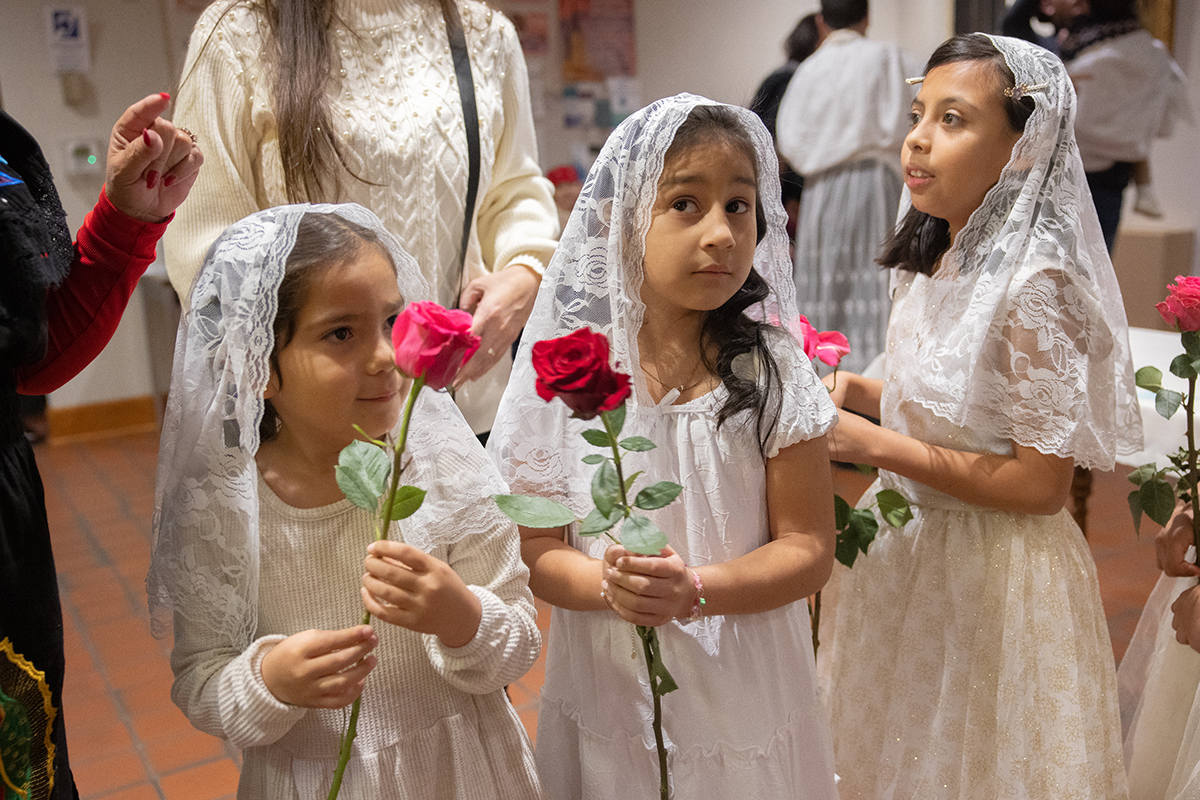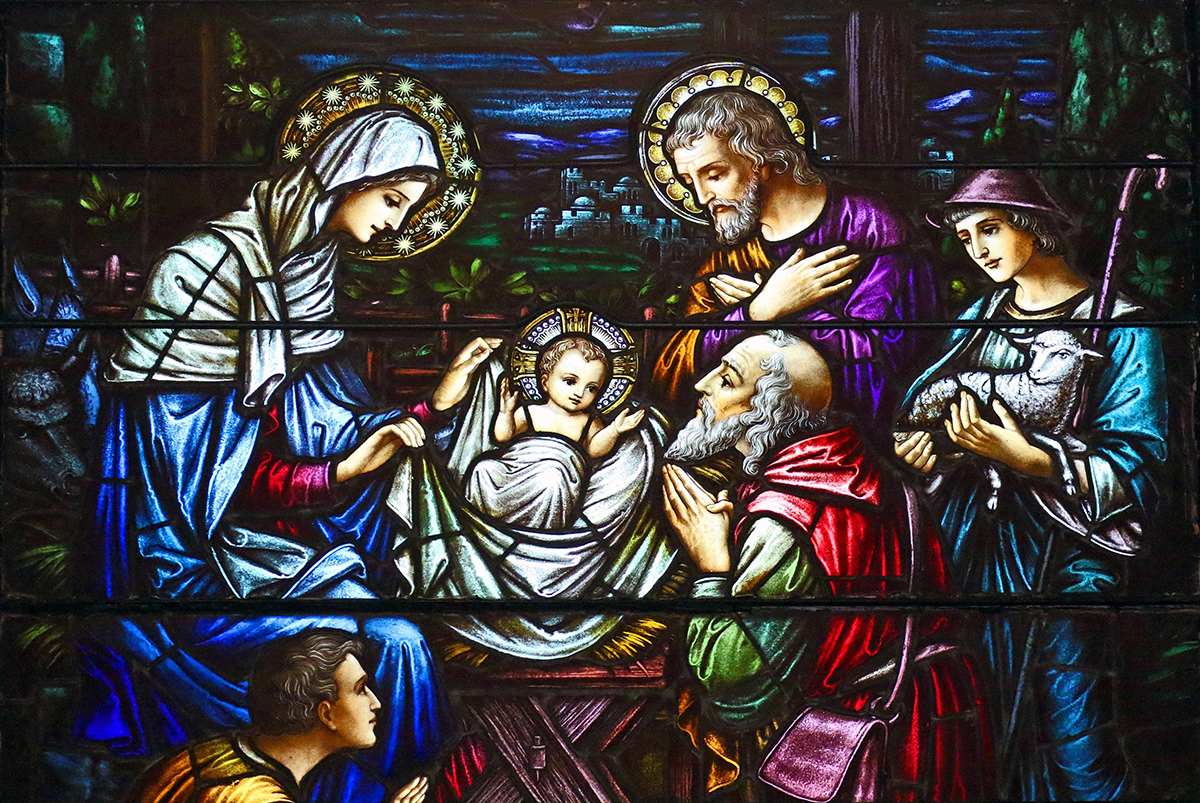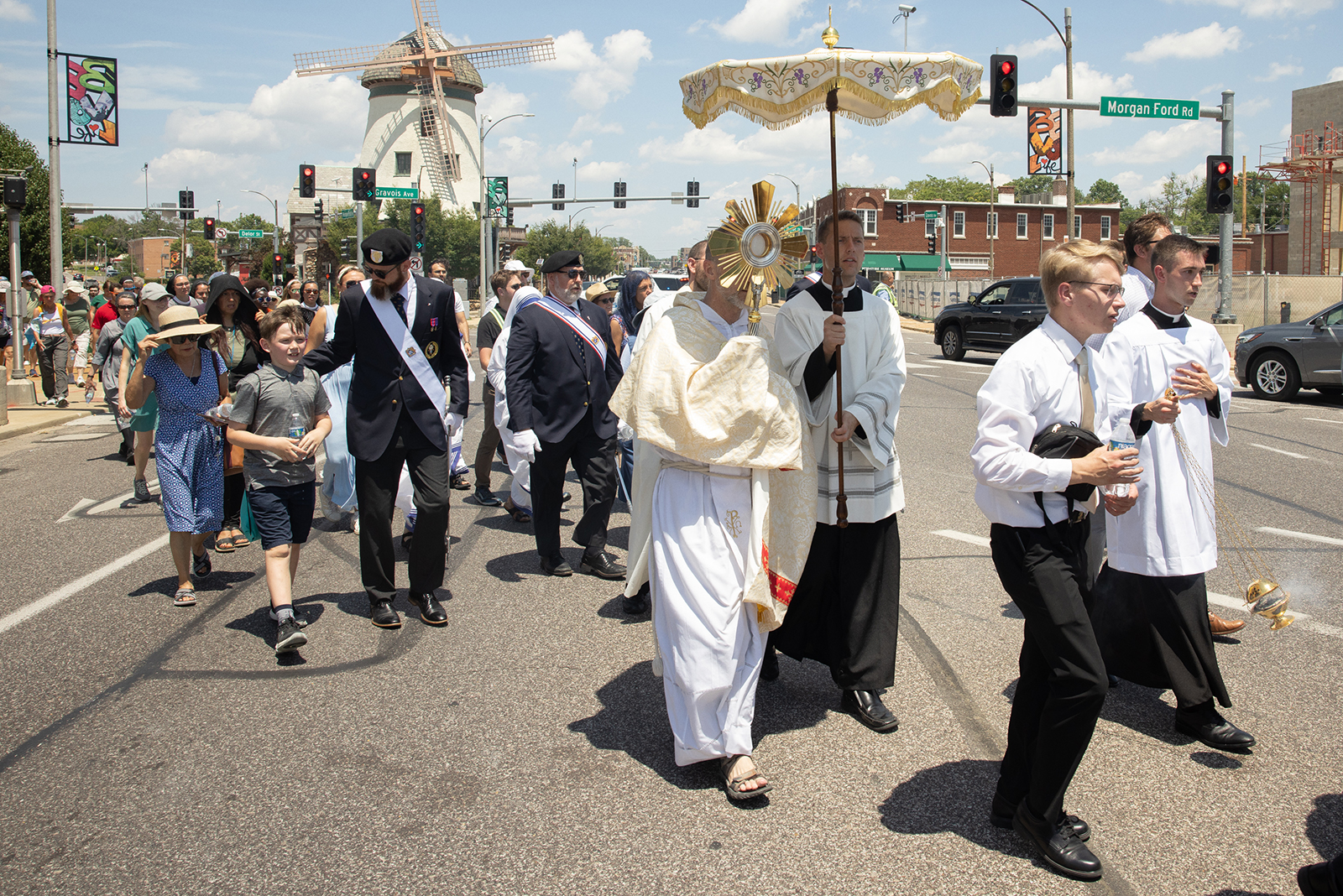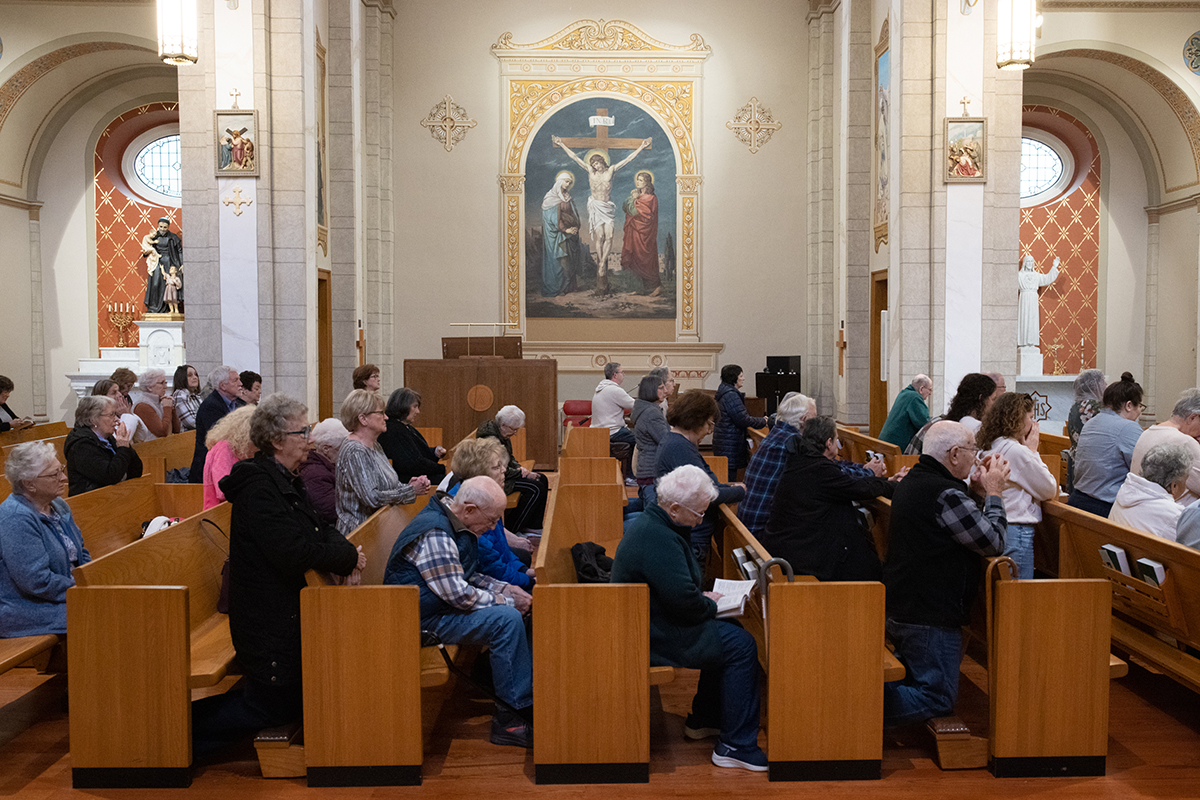Rescinding of DACA threatens ‘Dreamers’ who want to be citizens
Editor’s note: Updated Sept. 5 at 2:00 p.m. with information on rescinding of DACA and statements from Archbishop Carlson and the USCCB.
Vivian Garcia is freshman at St. Louis Community College at Forest Park, an artist and an ardent supporter of democracy. She wants to be a lawyer and go into politics or some form of governmental leadership here someday.
But those aspirations are threatened because Garcia came to the United States from Mexico as an undocumented immigrant at age 3. She didn’t even realize that was a problem until she was a freshman at Rosati-Kain High School and other students began talking about getting drivers’ permits.
Garcia spoke Sept. 1 at a vigil supporting the Deferred Action for Childhood Arrivals (DACA) policy and decrying legislation in Texas aimed at undocumented immigrants. The vigil was organized by Latinos en Axión STL and the St. Louis Inter-Faith Committee on Latin America (IFCLA) outside of the Thomas F. Eagleton U.S. Courthouse in Downtown St. Louis. The Archdiocese of St. Louis was among supporters of the event.
On Sept. 5, a few days after the vigil in St. Louis and similar rallies across the country, Attorney General Jeff Sessions announced that the Deferred Action for Childhood Arrivals program is “being rescinded” by President Donald Trump, leaving some 800,000 youth, brought illegally to the U.S. as minors, in peril of deportation and of losing permits that allow them to work.
Archbishop Robert J. Carlson released a statement following the announcement. He stated, “Throughout our Catholic tradition, we have learned to be attentive to the needs of the poor, the marginalized, and the vulnerable. In faith, we have come to recognize and know the face of Christ in the migrant and refugee. In this spirit of compassion and solidarity, today, I join my brother Catholic bishops, religious and civic leaders, the larger Catholic community, and people of good will in supporting the estimated 800,000 young people who have benefitted from the DACA program. The Archdiocese of St. Louis will continue to be a place of welcome, service, and mutual hospitality, especially to the suffering and most vulnerable among us.”
Texas’ attorney general, joined by 10 other state attorney generals, had threatened legal action if steps are not underway to dismantle the Deferred Action DACA policy by Sept. 5. The policy was started by the Obama administration in 2012. It grants relief from deportation to children who were brought to the U.S. before age 16 and have lived here since 2007. The 800,000 “Dreamers,” as they are known, must register their status every two years. In Missouri, DACA has allowed more than 3,500 young people to pass background checks and live and work legally in the country.
DACA does not provide legal status for youths who were brought to the country without legal permission as children, but it gives recipients a temporary reprieve from deportation and employment authorization in the United States — as long as the applicants meet certain criteria.
Garcia is one of the “Dreamers,” active in protecting their status and letting others know that they are similar to another young people in the U.S. who see this as the land of opportunity. “As an American, I work hard like any of you,” she said.
Considered an international student, she pays three times the tuition as in-state students. She does receive some private scholarships from people who are impressed with her talents and want to see her succeed. She has no real ties to the country where she was born.
At the rally, Garcia, who has three siblings born in America, held a painting she created which depicted people screaming and butterflies coming out of their mouths. Monarch butterflies, she said, are the symbol of migration.
A member of St. Cecilia Parish, Garcia appreciates that Catholicism is so pro-life, not just for the unborn but for all people, and that it stresses the importance of Jesus’ teaching to welcome the stranger. She praised Rosati-Kain for helping her feel welcome and safe.
In announcing the rescinding of DACA, Sessions said that the Department of Homeland Security will immediately stop accepting applications to the DACA program, current recipients would not be affected until March 5, which Sessions said will “create a time period for Congress to act — should it choose.”
A Sept. 5 statement from the U.S. Conference of Catholic Bishops called the cancellation of DACA “reprehensible” and something that “causes unnecessary fear for DACA youth and their families.”
“Today, our nation has done the opposite of how Scripture calls us to respond. It is a step back from the progress that we need to make as a country,” they said, adding that the decision by the Trump administration is a “heartbreaking moment in our history that shows the absence of mercy and goodwill, and a short-sighted vision for the future.”
The bishops also urged Congress to “immediately resume work toward a legislative solution.”
They told DACA recipients: “You are children of God and welcome in the Catholic Church. The Catholic Church supports you and will advocate for you.”
President Trump had expressed a desire to eliminate the policy that allows Garcia and about 800,000 others to remain in the country. “DACA has allowed thousands to pursue their dreams, live without fear of deportation in the country they call home, and invest in their future and in the future of our country, said Marie Kenyon, Director of the Peace and Justice Commission of the Archdiocese of St. Louis. “Our immigrant brothers and sisters deserve dignity, welcome and the opportunity to flourish.”
The New American Economy, a group of business leaders and city mayors, points out that some of the Dreamers serve in the U.S. military. Dreamers are more likely to be job-creating entrepreneurs compared to their native born counterparts, and they pay $1.7 billion in federal taxes and $2 billion in state taxes annually, according to the organization.
On Aug. 30 U.S. District Judge Orlando Garcia temporary barred implementation of a Texas law designed to crack down on so-called “sanctuary cities” in that state.
The law, set to go into effect on Sept. 1, would give local law enforcement the authority to ask about a person’s immigration status during routine interactions such as a traffic stop. It also would require local officials to comply with requests from federal immigration authorities to detain anyone suspected of being in the country illegally.
Opponents state that the law punishes local officials who choose to prioritize community safety over an anti-immigrant agenda backed by state and federal agencies. The law “will drive victims and those that witness crimes into the shadows,” according to a statement from Latinos en Axión and the Inter-Faith Committee in St. Louis. “It will leave survivors of domestic violence fearful of going to the police for support and protection. Overall, it will negatively impact public safety and efforts to build trust between law enforcement and our communities.”
RELATED ARTICLE(S):
Editor’s note: Updated Sept. 5 at 2:00 p.m. with information on rescinding of DACA and statements from Archbishop Carlson and the USCCB. Vivian Garcia is freshman at St. Louis Community … Rescinding of DACA threatens ‘Dreamers’ who want to be citizens
Subscribe to Read All St. Louis Review Stories
All readers receive 5 stories to read free per month. After that, readers will need to be logged in.
If you are currently receive the St. Louis Review at your home or office, please send your name and address (and subscriber id if you know it) to subscriptions@stlouisreview.com to get your login information.
If you are not currently a subscriber to the St. Louis Review, please contact subscriptions@stlouisreview.com for information on how to subscribe.





